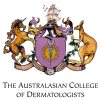What is PCOS?
PCOS stands for Polycystic ovary syndrome and 12% of women of child bearing age are affected with it. That is one in every 8 women. Hence it is not a uncommon issue and should be talked about more and more. Awareness should increase regarding the lifestyle management of PCOS. It is characterized by cyst like formations containing an egg which should be released by the ovary every month but due to a hormonal balance caused by PCOS, this does not happen.
What are the symptoms of PCOS?
There are multiple symptoms of PCOS and varies for each individual. The symptoms include:
- Weight gain
- Acne
- Sub fertility or infertility
- Excess hair growth on the face and body
- Scalp hair
- Risk of diabetes
What causes PCOS?
The biggest underlying cause is noted to be insulin resistance. Insulin is the hormone responsible for allowing the glucose from carbohydrate containing foods to be used up by the body for energy. However some people may develop a condition called insulin resistance which means that although the pancreas is secreting the insulin, the insulin is being resisted by the cells of the body which leads to further insulin release. These high levels can increase the level of testosterone in the ovaries which causes the symptoms of PCOS. The insulin resistance may develop as a result of being overweight or it may be genetic. PCOS may also develop as a result of family history.
Lifestyle management of PCOS
The benefits of having a healthy lifestyle cannot be ignored when it comes to PCOS. Some doctors may also recommend lifestyle management as the first line of treatment .If you need to loose weight, keep in mind that even a small amount of weight loss (around 5%) can improve symptoms related to mood, irritability, fertility and risk of developing diabetes.
A healthy diet for PCOS is one which primarily consists of wholegrain breads and cereals spread out across meals, similar to what would be recommended for a diabetic patient. The diet should include adequate quantities of protein, vegetables, low fat dairy and fruits. Consumption of processed snacks that are high in sugar and fat and takeaway foods should be minimized as they can lead to obesity and insulin resistance and hence PCOS.
Exercise also benefits people with PCOS especially for women who are overweight. The recommendation should be 150 minutes of moderate intensity exercise which should ideally include 90 minutes of aerobic exercise as we;; as weight training exercise. A combined exercise routine is recommended as both aerobic and weight training exercises have benefits. Aerobic exercise is beneficial as it leads to fat loss, while weight training increases muscle mass and metabolic rate at rest.
Contact us for results focused on nutritional advice
This article was written by our dietitian and nutritionist Juhi Bhambhaney. If you have any questions regarding health and nutrition, make an appointment with one of our dietitians. We‘ll provide you with a simple and effective routine targeted to your concerns. Contact us today.
The post Lifestyle management for people who suffer from PCOS appeared first on ENT Wellbeing Sydney.










